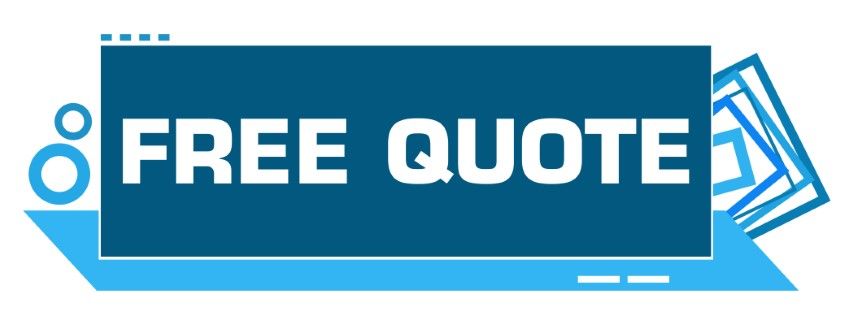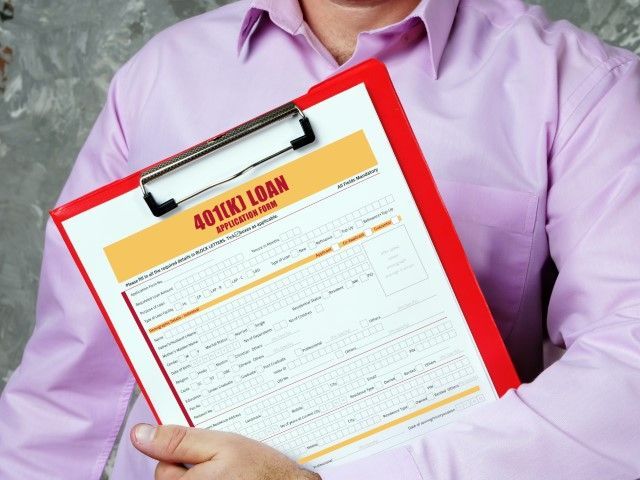CALL US NOW: (555) 555-5555
401(k) Loans in Tucson AZ
Escape the Debt Trap: Consolidate and Reclaim Your Financial Peace!
Take the first step towards financial freedom →
Tucson Debt Consolidation
401(k) loans are a borrowing option available to individuals with a 401(k) retirement plan. Instead of seeking funds from external lenders, you can borrow from your own 401(k) account. The purpose of these loans is to provide a way for plan participants to access their retirement savings without penalties or taxes, provided they repay the loan on time.
Why People Consider It
People often consider 401(k) loans for several reasons. They may need funds for major expenses such as home repairs, medical bills, or educational costs. The appeal lies in the ability to borrow from oneself, potentially with lower interest rates than traditional loans. Additionally, repaying the loan involves paying interest to one's own account, which can be more financially advantageous.
How It Differs from Other Types of Loans
401(k) loans differ from traditional loans in a few key ways. Unlike personal loans or credit cards, the interest you pay goes back into your 401(k) account, effectively paying yourself. Moreover, 401(k) loans typically have lower interest rates compared to other types of loans because you are borrowing from your own savings. However, failure to repay can have repercussions on your retirement savings and may trigger taxes and penalties.
Eligibility Criteria
To be eligible for a 401(k) loan, you must have an active 401(k) account with your employer, and the plan must allow loans. Generally, you need to be an active employee of the company offering the plan. Additionally, you must meet any specific requirements set by your employer’s plan, which may include a minimum account balance or a required period of employment.
Loan Limits and Terms
401(k) loan limits are typically set by federal regulations and plan specifics. Generally, you can borrow up to 50% of your vested account balance or $50,000, whichever is less. The loan must be repaid within five years, though this term can be extended if the loan is used to purchase a primary residence. Loan terms and amounts may vary depending on the specifics of your 401(k) plan.

We will get back to you as soon as possible.
Please try again later.
How to Qualify
Qualifying for a 401(k) loan involves meeting both your plan’s requirements and federal guidelines. Ensure that your plan allows loans and check for any specific conditions that might apply. You must also be current on your contributions and not have any other outstanding loans from the same 401(k) plan.
If you need more information about our
401(k) loan services in Tucson, AZ, or if you’re ready to apply, contact us today. Our team is here to assist you through every step of the process and answer any questions you might have. Let us help you access your retirement savings in a way that works for you.
How to Apply for a 401(k) Loan
A 401(k) loan can be a viable option if you need to access funds for significant expenses, such as buying a home or paying off debt. Here’s a straightforward guide to help you through the process of applying for a 401(k) loan.
Understand the Basics
Before applying, familiarize yourself with the key aspects of a 401(k) loan. Unlike a withdrawal, which permanently removes funds from your retirement account, a loan allows you to borrow money against your 401(k) balance and repay it with interest. The loan amount is generally limited to the lesser of $50,000 or 50% of your vested account balance.
Check Your Plan’s Rules
401(k) plans can vary, so it's important to review your specific plan's rules. Not all plans offer loans, and those that do may have different terms regarding repayment schedules, interest rates, and fees. You can usually find this information in your plan’s summary plan description or by contacting your plan administrator.
Calculate Your Loan Amount
Determine how much you need to borrow and ensure it complies with your plan’s limits. Keep in mind that borrowing too much could reduce your retirement savings growth. It’s wise to borrow only what is necessary to meet your financial needs.
Review Repayment Terms
Understand the repayment terms before applying. Typically, 401(k) loans must be repaid within five years, but this period can be extended if the loan is used to purchase a primary residence. Payments are usually deducted from your paycheck, making it essential to ensure you can comfortably meet these obligations.
Apply for the Loan
To apply, contact your plan administrator or use the online portal provided by your plan provider. You will need to fill out a loan application form, which might require details about the loan amount, purpose, and repayment terms. Be prepared to provide documentation to support your application if required.
Await Approval
After submitting your application, the plan administrator will review it. If approved, you’ll receive the loan funds, typically in the form of a check or direct deposit. The time frame for approval and disbursement can vary, so ask your plan administrator for an estimated timeline.
Manage Your Loan
Once your loan is disbursed, manage it responsibly. Make timely payments to avoid penalties or potential tax consequences. If you leave your job before repaying the loan, the outstanding balance may be due in full, or it could be considered a taxable distribution.
Keep Records
Maintain records of your loan agreement, payment schedule, and any correspondence with your plan administrator. This documentation will be helpful if any issues arise or if you need to reference the loan in the future.

By following these steps, you can efficiently navigate the process of applying for a 401(k) loan, ensuring you make informed decisions that align with your financial needs and retirement goals.
Advantages of Taking a 401(k) Loan
Taking a 401(k) loan can be a strategic financial move under certain circumstances. Here are several key advantages:
Access to Funds Without Penalties
One of the primary benefits of a 401(k) loan is the ability to access your own money without incurring early withdrawal penalties or paying taxes on the amount borrowed. Unlike other types of loans or withdrawals, a 401(k) loan does not require you to pay a penalty if you're under the age of 59½. This makes it an attractive option if you need cash for a significant expense or financial emergency.
Lower Interest Rates
401(k) loans generally offer lower interest rates compared to personal loans or credit cards. The interest rate on a 401(k) loan is often set at the prime rate plus 1% or 2%, which can be more favorable than rates on unsecured loans. Additionally, the interest paid goes back into your 401(k) account, essentially allowing you to pay yourself the interest rather than paying it to a lender.
Flexible Repayment Terms
Repayment terms for 401(k) loans are often flexible. Typically, you have up to five years to repay the loan, though the term can be extended if the loan is used to purchase a primary residence. This flexibility can make it easier to manage your finances and budget for repayments without the stress of a shorter loan term.
No Impact on Credit Score
A 401(k) loan does not impact your credit score, as it is not reported to credit bureaus. This can be advantageous if you are concerned about maintaining or improving your credit rating. Unlike traditional loans, there is no need for a credit check or the potential negative effect on your credit score from taking out a 401(k) loan.
Simple Application Process
The process to apply for a 401(k) loan is typically straightforward and involves less paperwork than other types of loans. Since you are borrowing from your own retirement savings, the approval process is generally quicker, and you don't need to go through a credit evaluation or provide collateral.

While taking a 401(k) loan has its advantages, it's essential to consider the potential downsides and ensure it aligns with your long-term financial goals. Weighing the benefits, such as lower interest rates and no penalties, against the impact on your retirement savings and future growth is crucial in making an informed decision.
LET'S CONNECT!
Our goal is to help you manage and reduce your debt more effectively. By consolidating multiple debts into a single loan, we simplify your payments and potentially lower your interest rates. Our experienced team works closely with you to understand your unique financial situation and tailor a consolidation plan that meets your needs. Whether you are dealing with credit card debt, personal loans, or other financial obligations, we are here to provide support and solutions. Contact us today to learn more about how we can assist you.